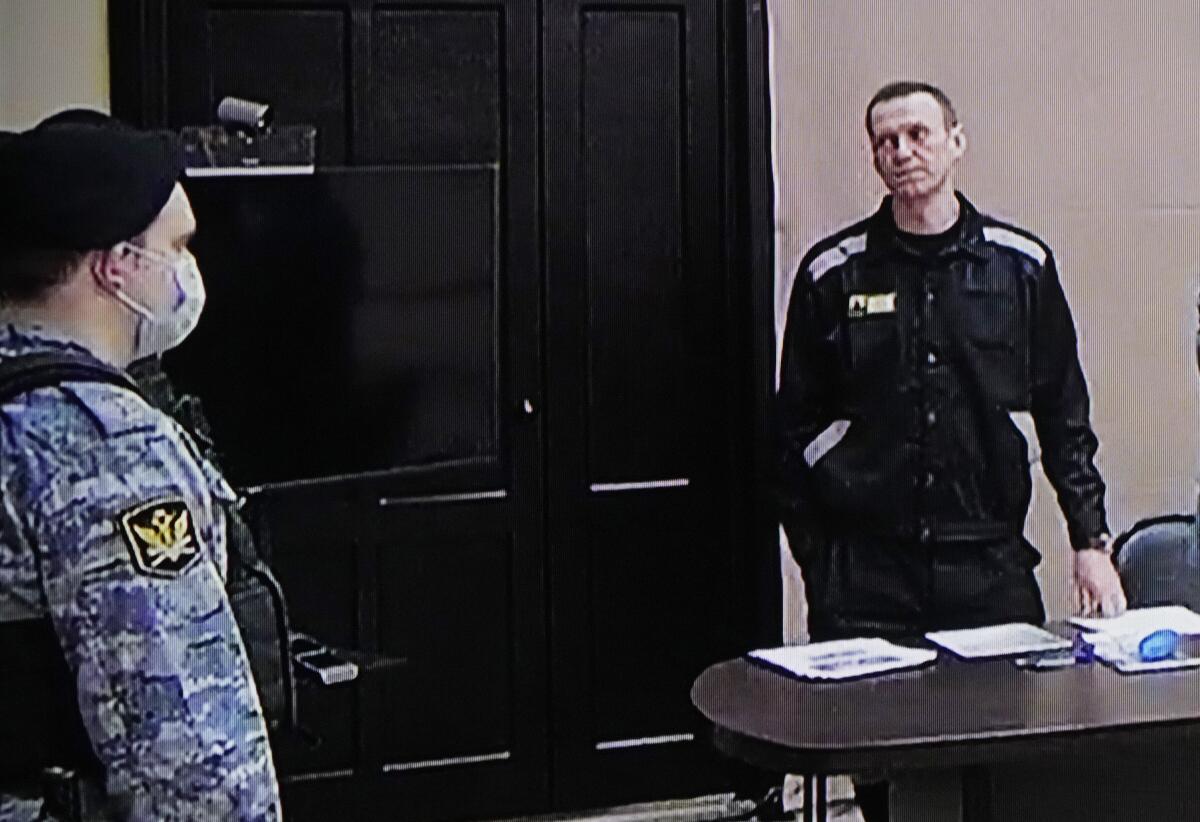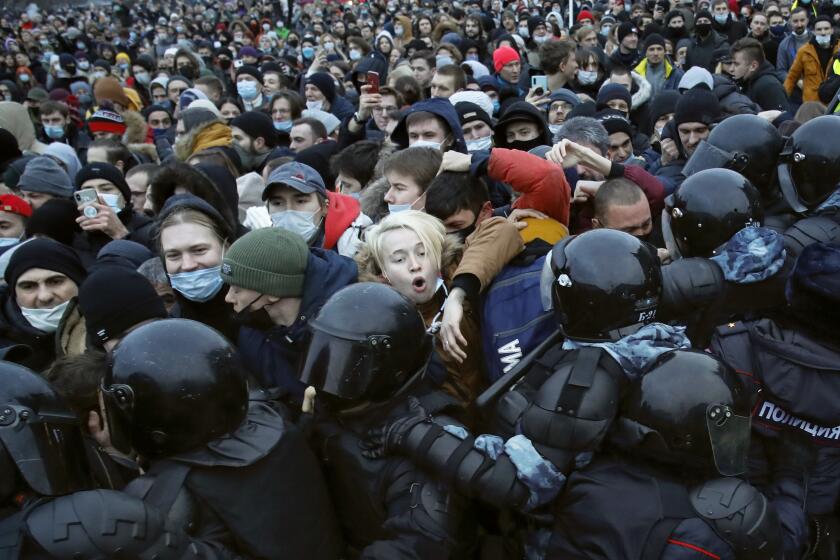Already behind bars, Russia’s Alexei Navalny is handed another prison sentence

- Share via
MOSCOW — Russian opposition leader Alexei Navalny was convicted of fraud and contempt of court and sentenced Tuesday to nine years in a maximum-security prison, in a trial Kremlin critics see as an attempt to keep President Vladimir Putin’s most ardent and highest-profile foe in prison for as long as possible.
A judge also ruled that Navalny would have to pay a fine of 1.2 million rubles (about $11,400). Navalny can appeal the ruling.
Navalny, an anti-corruption campaigner who is already serving 2½ years in a penal colony east of Moscow, had been accused of embezzling money that he and his foundation raised over the years and of insulting a judge during a previous trial.
He has rejected the allegations as politically motivated. The prosecution had asked for 13 years in a maximum-security prison and a 1.2-million-ruble fine.
It wasn’t immediately clear whether Navalny was expected to serve this sentence concurrently with his present sentence or on top of it, or which maximum-security facility he would be transferred to and when.
Navalny’s Twitter account responded to the ruling with a quote from the television series “The Wire”: “[Nine] years. Well, as the characters of my favorite TV series ‘The Wire’ used to say: ‘You only do two days. That’s the day you go in and the day you come out.’ I even had a T-shirt with this slogan, but the prison authorities confiscated it, considering the print extremist.”
The prison sentence imposed a year ago on leading Kremlin critic Alexei Navalny heralded a heavy Kremlin response against Russia’s dissidents.
His trial, which opened about a month ago, unfolded in a makeshift courtroom in the prison colony hours away from Moscow where Navalny is serving a sentence for parole violations. Navalny’s supporters have criticized the authorities’ decision to move the proceedings there from a courthouse in Moscow, saying it has in effect limited access for the media and supporters.
Navalny, 45, has appeared at hearings wearing prison garb and made several elaborate speeches during the trial, decrying the charges against him as bogus.
He was arrested in January 2021 immediately upon his return from Germany, where he spent five months convalescing from a poisoning widely blamed on the Kremlin, an allegation Russian officials deny. Shortly after the arrest, a court sentenced him to 2½ years in prison over parole violations stemming from a 2014 suspended sentence in a fraud case that Navalny and human rights groups say was politically driven.
After Navalny’s imprisonment, authorities unleashed a sweeping crackdown on his associates and supporters. His closest allies have left Russia after facing multiple criminal charges, and his Foundation for Fighting Corruption and a network of nearly 40 regional offices were outlawed as extremist — a designation that exposes people involved to prosecution.
News Alerts
Get breaking news, investigations, analysis and more signature journalism from the Los Angeles Times in your inbox.
You may occasionally receive promotional content from the Los Angeles Times.
Last month, Russian officials added Navalny and a number of his associates to a state registry of extremists and terrorists.
Several criminal cases have been launched against Navalny individually, leading his associates to suggest that the Kremlin intends to keep him behind bars for as long as possible.
More to Read
Sign up for Essential California
The most important California stories and recommendations in your inbox every morning.
You may occasionally receive promotional content from the Los Angeles Times.











